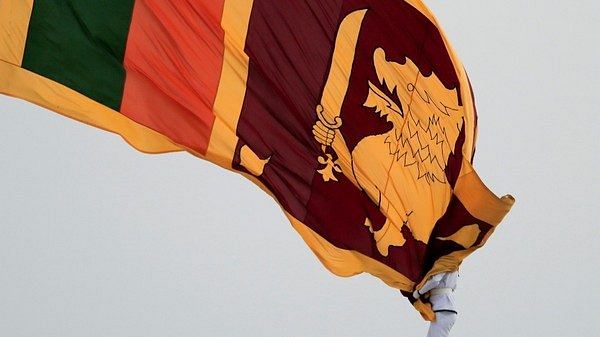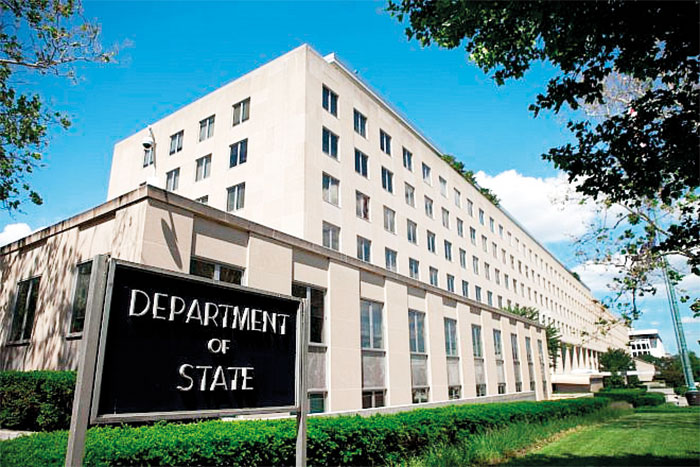Sri Lanka can’t move on from civil war history. Sinhala elite insecure about sharing power
August 18th, 2023JYOTI MALHOTRA Courtesy The Print
A complete lack of trust between the Sinhala elite and Tamil minority is apparent across Sri Lanka, which seems unable to even begin laying some of its ghosts to rest.

Forty years ago this July, back in 1983, Sri Lanka was devastated by an anti-Tamil pogrom in which several hundred people were killed, triggering a civil war that plunged this paradise island into a deep abyss. That darkest chapter ended only in 2009 with the killing of LTTE leader Prabhakaran and another 100,000 or so people – Sinhala, Tamil, Muslim, more than a thousand Indian soldiers as well as India’s former prime minister Rajiv Gandhi.
You would have thought that Sri Lanka, a tiny island nation of 22 million people about the population of Mumbai, would have at least begun laying some of its ghosts to rest. But the worm has been turning in paradise for so long that it has embittered even the Middle Path proposed by the Buddha as a metaphor for peace and reconciliation; decades later, Sri Lanka’s Buddhist Sinhala majority simply seems unable to share power with its Tamil minority.
So, when President Ranil Wickremesinghe recently spoke in Parliament about the need to at least partially implement the 13th Amendment that promises to devolve some powers to the provinces, including those where Tamils are in a majority – and which has been part of the country’s Constitution since the India-Sri Lanka accord was signed in 1987 – it was variously received with disdain, shock and a sense of betrayal.
Travelling across Sri Lanka this past week has been an exercise in observing a deeply riven nation that seems unable to come to terms with itself. This is such an incredibly beautiful country – the streets of Jaffna, Mannar, Trincomalee, Nalanda Gedige, Matale, Kandy, and Colombo are so shockingly clean that you wonder why Sri Lankans want to spend their time sweeping the dirt and filth away and showcasing a First World image when a hundred other crises are constantly presenting themselves.
Or, perhaps, that’s exactly why. When there are so many crocodiles in the river, you ignore their gaping mouths and reach for a semblance of order in your lives.
Also read: Take care, Rajiv Gandhi told Prabhakaran. Even gave bulletproof vest before Sri Lanka Accord
Slacking economy, powers to minority
First, an enumeration of the crises, at least as seen by an outsider. There is the economy, now struggling to revive with a little help from the IMF (which has lent Sri Lanka its first $2.9 billion tranche) and India (which has lent $4 billion). It’s been a year since the unprecedented economic chaos led to former president Gotabaya Rajapaksa fleeing the country and the unelected Wickremesinghe being named prime minister and then president; Sri Lanka defaulted for the first time in its history and stared at paying a foreign debt of $51 billion, its GDP falling by 7.8 per cent and inflation rising to nearly 70 per cent by last September.
A year on, the news is far better. An April IMF report says the economic contraction will be far less severe (-3.1 per cent in 2023 and growth of 1.5 per cent in 2024), while inflation has halved to 35 per cent. From all accounts, Wickremesinghe is using the crisis to initiate economic reforms by reducing subsidies, trying to attract foreign investments and rolling loans for another year. As poverty doubles, he knows he is facing the severest challenge of his over 40-year-long political career.
Second, the continuing insecurity in the Sri Lankan Sinhala elite about sharing power with their Tamil and Muslim minorities seems astounding at best and inexcusable at worst. The Sinhalas are a rank majority, about 16.5 million or 75 per cent of the population, while the minority Tamils are 5 million or 15 per cent of the population. Of course, a large part of the insecurity is based on the Tamil Tiger-led insurgency that fractured the country for several decades.
But the fact also remains that the civil war has been over for 14 years. Moreover, the ruthless LTTE not just killed thousands of Sinhala people but decimated the ranks of the Tamil leadership. It’s a no-brainer that this tiny country needs reconciliation if it has to move on from the horrors of those years, that no reconciliation is possible without dignity and that dignity presupposes equality between all sides.
The scandal at hand is about a 36-year-old piece of legislation called the 13th Amendment, which is very much part of the Sri Lankan Constitution, although many citizens argue it was pushed down their throat in 1987 when the India-Sri Lanka accord was signed between Rajiv Gandhi and JR Jayawardene. The legislation, though, has still not been implemented. Why, you might ask. Do the Sinhalas hate it so much? Perhaps. And that’s because the 13th Amendment guarantees the exercise of land and police powers in all provinces, including the North and East provinces in which Tamils are a majority — presumably, the Sinhala-majority elite is nervous that the Tamils will also exercise these powers to the detriment of the nation.
A clear and complete lack of trust between the Sinhala elite and Tamil minority is apparent across the country – a Sunday Times editorial this past week described any leniency on the 13th Amendment as giving in to extremist elements”. Interestingly, Wickremesinghe has put a Tamil politician, Senthil Thondaman, as governor of the Eastern province — the Thondamans of the Ceylon Workers Congress are part of Wickremesinghe’s government today and have always loved the status quo above everything else.
They represent the upcountry Tamil population — indentured labour imported by the British from India 200 years ago — who have known poverty intimately, have compromised with most governments over the decades and understand that if they want to wield power, they cannot confront the Sinhala elite but must get around them.
In an interview in his beautiful, colonial period office in Trincomalee, Thondaman told me that he, his party and the Tamil people were comfortable with the fact that only land powers should be given under the 13th Amendment. He said he agreed with Wickremesinghe’s proposal that powers over the police will not be given. We know we have to compromise with the majority Sinhalas, we have to try and get what we can, so why fight,” Thondaman said, cutting a natty figure in his blue jeans and baby pink shirt.
Also read: How Indian forces responded in Sri Lanka after a botched Jaffna operation: Lt Gen AS Kalkat (retd)
The India and China factor
The third crisis testing Sri Lanka these days is the return of the Indian hegemon” – the words find themselves splashed liberally across the local media. And what, pray, constitutes this so-called hegemony”? The string of Indian projects, both private and government, that have come up as well as those in the pipeline. From the Adani Group’s investments in the Colombo Port to investments in wind farming in the northern region; from the Indian government’s interest in jointly developing the Trincomalee harbour to constructing a Sampur thermal power plant as part of transforming the Trinco region into an energy hub; from linking Dhanushkodi on the tip of Tamil Nadu to Talaimannar in the north with ferry services — the list is endless.
What is interesting is that most of these projects have seen the light of day in the last year as the economic crisis hit the country — and India bailed out Sri Lanka with its timely offer of aid and assistance.
Luckily, private business is far more excited with the idea of Sri Lanka riding on the growth spurt in the Indian economy – they want the ghosts of the past, led by the 1987-1991 Indian Peace-Keeping Force, to be finally laid to rest. That Sri Lanka must do with India what ASEAN did with China two decades ago, by becoming a satellite state and riding the profits of the fifth largest economy in the world.
The fourth crisis is about the expanding Chinese presence in Sri Lanka. The Hambantota Port has been leased for 99 years, you need permission to enter the Colombo Port city – two- and three-wheeler vehicles, for example, are not allowed inside – and a $10 billion loan exists on the cards, which the Chinese took forever to agree to roll over when the crisis hit last year. And now, Ranil Wickremesinghe is wending his way to China in October.
Never a dull day in Sri Lanka? It’s clearly one of the most interesting places in the world.
Jyoti Malhotra is a senior consulting editor at ThePrint. She tweets @jomalhotra. Views are personal.
(Edited by Prashant)



